The time has come for the pharmaceutical industry to seize the opportunities offered by artificial intelligence. At Sanofi, this transformation takes the form of a bold strategy orchestrated by Florent Edouard, Global Head of the Digital Accelerator.
After an international career at AstraZeneca and Grünenthal, he brings an ambitious vision: to reposition artificial intelligence at the heart of the marketing and commercial activities of the French giant.
“All in on AI”: A visionary strategy
The “All in on AI” philosophy goes beyond simply adding AI features to existing tools in the departments. Sanofi has chosen to fundamentally rethink its processes by putting artificial intelligence first, across all professions, at all levels.
The announced breakup between Salesforce and Veeva, the historic solution duo forming the CRM ecosystem of reference in the pharmaceutical industry, forces laboratories to rethink their organization. Rather than passively undergoing this change, Sanofi questions the relevance of these traditional solutions. The hypothesis: why not rethink CRM, which is currently centered on the customer, powered by artificial intelligence, and designed to create the best possible user experience? This approach aligns with the AI first philosophy that now guides the Group’s technological directions.
“The strategy is simple, it fits in one sentence: it’s All in on AI, meaning we put artificial intelligence at the heart of everything we do at Sanofi, at the heart of all professions, and we want to prioritize AI,” says Florent Edouard, Global Head of the Digital Accelerator, Sanofi.
The Digital Accelerator: An internal start-up at Sanofi to guide transformation
This transformation relies on an innovative organizational structure: the Digital Accelerator. Florent Edouard leads the Commercial Accelerator, which operates like a true internal start-up within the pharmaceutical group, with a mission to accelerate digitalization, implement AI technologies, and support strategic projects in data and artificial intelligence.
The Digital Accelerator operates in a fully agile mode – an atypical approach for the pharmaceutical sector. The teams are exclusively dedicated to one project, created ad hoc, and develop at an accelerated pace under the responsibility of autonomous product owners. This agile mode helps reduce the time to market for drugs. Currently, developing a pharmaceutical product takes between 10 and 20 years, leaving a multitude of patients waiting without access to treatments that could help them.
“The faster we bring products to market, the earlier patients can benefit and have access to treatment that meets their needs. This is one of the major challenges for the entire pharmaceutical industry. Artificial intelligence represents a major opportunity in this respect,” states Florent Edouard, Global Head of the Digital Accelerator, Sanofi.
A balanced strategy: Build & buy
Sanofi’s Digital Accelerator promotes a strategic approach that evolves traditional AI toward agentic AI. It distinguishes between two types of artificial intelligence combining internal construction (build) and partnerships (buy):
- Strategic AI concerns applications directly related to core business: accelerating clinical trials, identifying patients likely to respond positively to treatments, optimizing research and development processes. These critical areas justify internal development to preserve competitive advantage and intellectual property.
- Snackable AI, as Florent Edouard calls it, refers to more generic and standardized artificial intelligence that can be acquired from external partners and deployed for employees.
Successfully integrating AI Agents: Convincing from the top down
To effectively deploy AI agents, Sanofi began by equipping its top management. This strategy, conducted in partnership with Aily Labs (agentic AI solution), demonstrates the effectiveness of these tools at the highest hierarchical level to facilitate widespread adoption. 95% of Sanofi’s top management use AI agents daily. The challenge now is to extend this adoption across the entire organization.
“I think we are at the beginning of the transformation because it is an extremely profound transformation. It will affect all professions. We also need to bring employees along with us, not just the top 100 or top 500,” insists Florent Edouard, Global Head of the Digital Accelerator, Sanofi.
The conversational agents deployed to executives analyze all of the company’s data and identify optimization opportunities. They propose strategic investments with precise return-on-investment projections, at the heart of decision-making.
Innovation lies in the interaction between these agents. A commercial AI agent can identify an investment opportunity, then engage in dialogue with the financial AI agent to locate those funds within the organization. The financial agent analyzes its scope, identifies low-yield activities, and proposes an optimized budget reallocation.
Going beyond the limits of traditional pharmaceutical marketing
Traditional marketing functions in the pharmaceutical industry are limited. Marketers work mainly with PowerPoint and external agencies. Their mastery of sophisticated mathematical models remains insufficient.
“If you ask a marketer what the most sophisticated mathematical model is to explain commercial success, 95% will tell you correlation,” explains Florent Edouard, Global Head of the Digital Accelerator, Sanofi.
The transformation of marketing services demands greater employee accountability with regard to their data and the AI agents that exploit them. In the future, they will need to be responsible for the agents that use this data to make recommendations, requiring massive support and the acquisition of new technical skills.
The main risk lies in the quality of source data. Generative AI models fed with faulty data produce erroneous recommendations. This can lead to costly strategies with no tangible results and no benefits for the company, patients, or physicians.
Use case: Automated insight management
Sanofi is developing concrete agentic AI applications, particularly for processes involving launching new pharmaceutical products. Marketing insight management is one such example.
The traditional market research process represents an investment of about one million euros to generate 300 pages of analysis, usually condensed into a few summary pages before being archived on SharePoint. At Sanofi, this information is potentially scattered across 180,000 SharePoint spaces containing millions of documents.
Accessing this data today requires human intervention to locate and extract relevant information. Agentic AI transforms this approach by enabling direct access to strategic insights rather than raw data. As a result, it promises to accelerate the time to market for drugs, improve the quality of marketing activities, and optimize commercial impact.
“Tomorrow, we’ll only need an AI agent with access to this data, and it will provide us with the insight – the real information we need, not with all the original data,” enthuses Florent Edouard, Global Head of the Digital Accelerator, Sanofi.
Governance and organizational architecture
The successful deployment of agentic AI relies on strong, structured, and centralized governance. Sanofi has established a platform that allows any employee to document their AI application idea and access a test environment to develop a prototype version.
Opting for centralized governance avoids the multiplication of redundant initiatives in an international group where teams sometimes independently develop similar solutions. The Digital Accelerator has also created a centralized technology platform, integrating various technologies like OpenAI, to support better coordination among teams.
The goal: to avoid a sort of chaos where each entity would have its own agents with different operating modes and inconsistencies in dialogues and communications.
Sanofi, a pioneer in a new pharmaceutical era?
The transformation underway at Sanofi demonstrates the potential of artificial intelligence in an industry with traditional marketing. By placing AI at the heart of its strategy and deploying conversational agents across all hierarchical levels, the Group aims to redefine the standards.
Success will depend on Sanofi’s ability to support its employees through this technological revolution while maintaining structured governance. The pharmaceutical industry is entering a new era, where artificial intelligence could unlock new possibilities for improved access to care.
Watch the video replay in French:

 BLOG
BLOG





